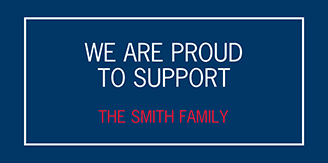How to Write and Publish Your Book #5
I'm ready to publish my book/ebook. What now?
The book's been written and edited, and it's finally time for your baby to see the light of day. You want to publish your book but wouldn't have a clue where to start...sound familiar? I've been there so I know exactly how you feel, and the farther you delve into it the more overwhelming it can become. The best place to begin is by researching the different types of publishing and deciding which best suits your needs. In the following sections, I have compiled some general information on commonly available publishing options. this time we'll be looking at two kinds of publishing: Traditional Publishing and Partnership Publishing.
1. Traditional Publishers
Most books at your local bookstore have been published through a traditional publishing house. This type of publisher usually acquires books as solicited manuscripts via literary agents. Their services are primarily performed in-house and include: editing, graphic design, type setting, printing, distribution, and marketing.
Advantages:
- Your title will receive the highest exposure and will be available for sale through high street bookstores.
- Authors do not pay traditional publishers to publish their book.
- Traditional publishers sometimes pay authors an advance prior to publication then pay a royalty percentage (usually 5 10% for the first-time author) from each sale.
Disadvantages:
- Traditional publishing can be difficult for first-time authors to break into, as it is more exclusive, most often supporting well-known authors and celebrities.
- Author advances are considered a loan that is paid back through sales of the book. No royalties are paid until the advance amount has been covered. It is important to know that an estimated 75% of first-time author books published using this option do not make sales over the advance figure. In some cases, when book sales do not cover the advance the author must return the balance to the publisher.
- Royalty percentages may be calculated after costs and not necessarily reflect a percentage of the recommended retail price (RRP). Books are supplied to bookstores by sale or return, and if sales are not forthcoming within 2-3 weeks, the title will be returned or discounted. This is why we see so many discounted books in the stores. And with each discounted stage, the author's royalty percentage can diminish.
- Authors have very little control of their books especially in areas such as design and sales.
- Authors can be locked into a contract.
- Authors are usually represented by an agent, who will take a further 10% of all earnings.
What are traditional publishers looking for?
There are some important things to understand before approaching a traditional publisher. In most cases, publishers are looking to sign full time authors in the same way a plumbing company would employ a qualified plumber.
This means that once an author signs a contract with a publisher, the author will become the publisher's employee and be obligated to carry out all the necessary on-demand author tasks, such as book signings, interviews, speaking engagements, guest appearances, etc. Authors are expected to build a brand that can be marketed, so publishers are interested in both the book and the author. What is the author's writing background? What accomplishments or awards have been earned? Is the writer active in the writing community? Could this writer produce at least one book each year? And, most importantly, is this author marketable?
A traditional publisher will take on a book only if they believe there is a market for it and that money can be made from it, and only if they believe the author will be as marketable as the books they write.
2. Partnership/Vanity Publishers
Partnership or Vanity publishers charge authors fees for limited editorial assistance, poor quality book production, and unrealistic marketing.
Advantages:
- A good option for the author with a bottomless pocket, who isn't concerned with quality, sales, or having control over their book.
- Partnership/Vanity publishers make authors feel good or successful by telling them their books are great regardless of the actual quality.
Disadvantages:
- This publishing option charges a high fee for services rendered, and takes around 80% of royalties for each book sold.
- Authors have very little control of their books and are usually locked into a 3-5 year contract.
- Acquisition processes are less selective and can result in flooding the market with low quality products.
- Few authors are successful using this publishing route, as they bear the cost and responsibility of marketing the book on top of the initial high set up fees.
- Marketing by the publisher is usually minimal, unless the author is prepared to pay additional fees.
- What are some things to watch out for with Partnership/Vanity publishers?
Be careful if you decide to work with a Partnership/Vanity publisher. Check the small print; make sure you understand exactly how much cost is involved and what you will receive for your money. Don't sign away all your rights and do try to negotiate a higher royalty for yourself.
If any publisher tells you your book will be a success or even goes as far as guaranteeing it will become a bestseller (I've seen this advertised on some websites) walk away.
While serving as President of a large writers' association, and more recently as a self-publishing consultant and CEO of Publicious self-publishing, I have met many writers who have had the misfortune of being stung by this type of publisher. Often this happened because they hadn't understood what they were signing or, even worse, they had simply been ripped off. The cost to authors can amount to thousands of dollars.
Next time I'll be discussing in depth the pros and cons of self-publishing.
Until then...write on!
| Tags:Andy McDermott / Director |
Post comment

) Author:
Author:
